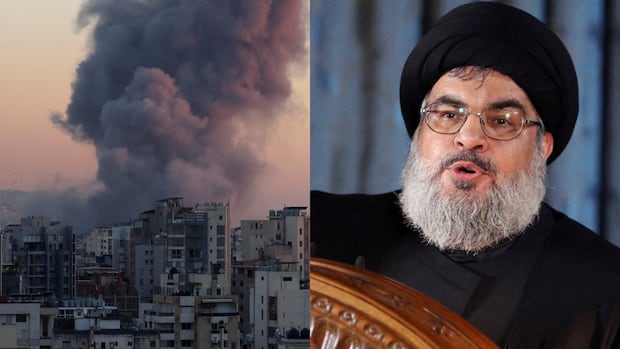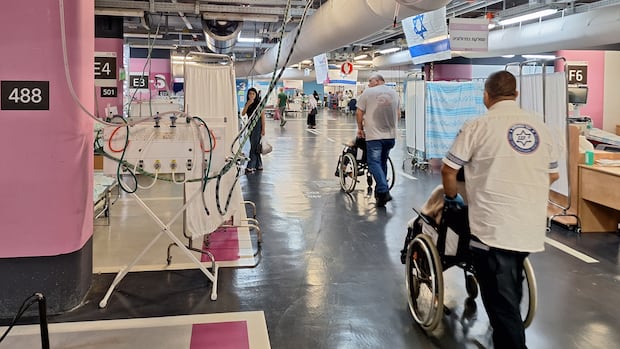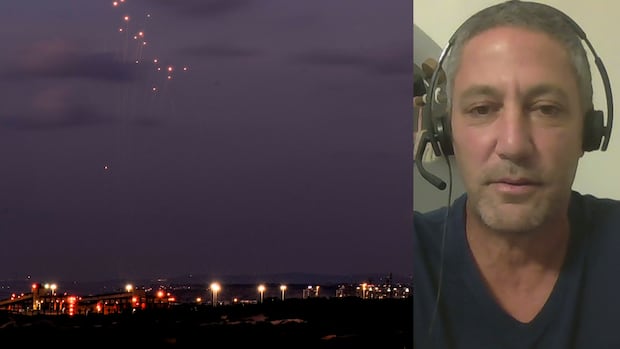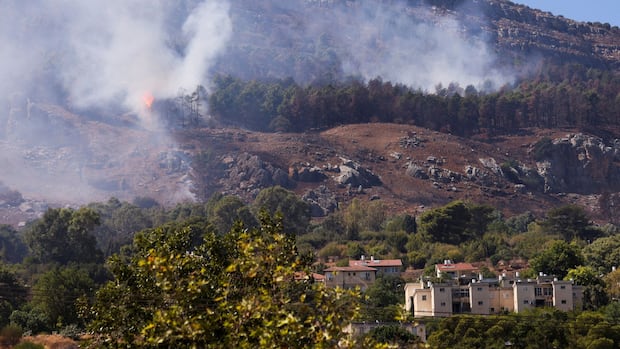
Many Israelis may be in a jubilant mood over the death of one of their fiercest adversaries, but the arsenal of missiles and rockets stockpiled by Hezbollah remains a potent threat — prompting extraordinary measures by Israel, including moving a major hospital underground.
The frequency of attacks on Israeli communities near Lebanon’s border has only marginally lessened since the assassination on Friday of Hassan Nasrallah, leader of the Lebanon-based Shia militant group.
In the 24 hours that followed Israel dropping its “bunker busting” bombs on Hezbollah’s command centre in Beirut, an operation that killed not only Nasrallah but up to 20 other senior Hezbollah members, the Israel Defence Forces (IDF) said dozens of missiles were launched from Lebanon toward communities in the northern Galilee area.
Hezbollah has confirmed its leader for three decades, Hassan Nasrallah, was killed in an Israeli airstrike in Lebanon on Friday and vows to continue the battle against Israel.
Again, on Sunday, several dozen more Hezbollah rockets were aimed at communities such as Tiberias near the Sea of Galilee and Shlomi, near Israel’s coastline.
As Israel pressed ahead with more airstrikes in the Beirut area, Iran acknowledged a deputy commander of its Revolutionary Guards was among the victims and vowed his death “will not go unanswered.”
Possible counterattack feared in Haifa
In the Israeli coastal city of Haifa, with a population of roughly 300,000 some 50 kilometres from Lebanon’s border, the atmosphere remains tense as people fear the area could bear the brunt of a possible counterattack from either Hezbollah or Iran.
A CBC News team witnessed at least two swarms of Hezbollah missiles being shot down by Israel’s anti-missile system over the city’s waterfront in recent days.
Across Israel’s north, there are destroyed or damaged homes and buildings, attesting to the fact that despite the sophisticated system of defences, some missiles still manage to get through.
“It’s not 100 per cent, so we still need another level of protection,” said Dr. Eyal Braun, director of internal medicine at Haifa’s Rambam Hospital.
In the hospital’s case, it’s actually three levels of protection — three storeys underground.
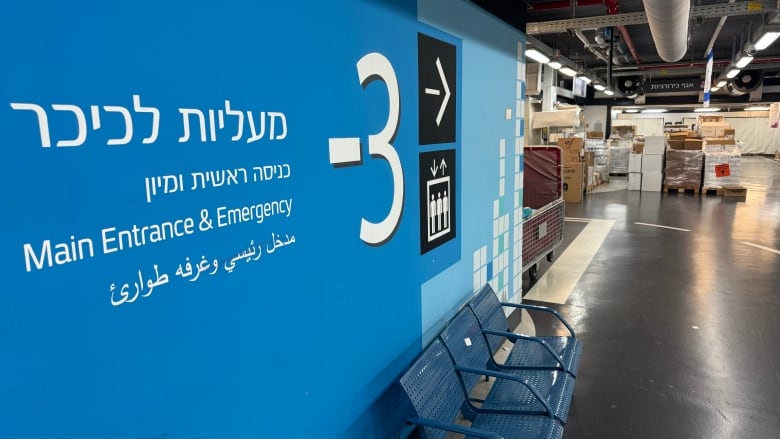
In a remarkable transformation a week ago, hundreds of patients and more than 2,000 staff packed up wards and operating rooms and moved everything deep below — to the hospital’s underground parking lot.
Braun said that where he was parking his car just days ago, there are now bedridden patients attached to monitors and being supervised by nursing staff.
“Since 2006, the second Lebanese war, we knew that in the case of war, we needed to protect our patients and ourselves in a better way,” he told CBC during a tour of the facility.
With fears mounting of a wider war between Israel and Hezbollah, and rocket strikes looming in the skies above Haifa, Israel, this hospital has taken its operations to a fortified underground parking garage.
Hospital move months in the making
The car park had been designed and built for such a transformation, with plugs, plumbing and plenty of overhead lighting.
Following Hamas’s attacks on southern Israel when its war with Israel started last October, the hospital readied its plans to move underground. But administrators only gave the order to do so on Sept. 23 in the aftermath of the pager and walkie-talkie explosions in Lebanon, and the start of a major Israeli bombing campaign against Hezbollah’s leadership.
Those attacks — including the massive one that killed Nasrallah — have resulted in the deaths of more than 1,000 people in Lebanon, including many women and children, according to the country’s Health Ministry. In one of the latest strikes, Lebanese health authorities say 24 people were killed on Sunday by Israeli fire in Sidon, one of Lebanon’s largest cities.
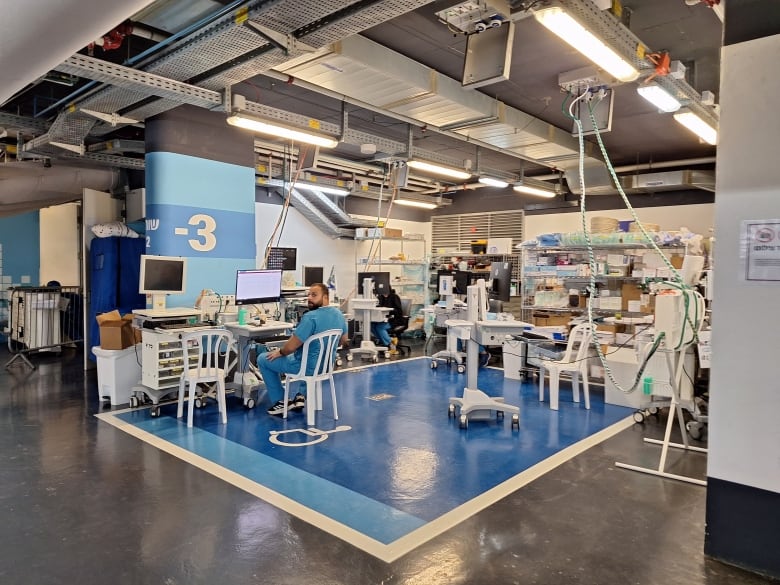
In Haifa and the surrounding area, Israeli casualties from Hezbollah’s rocket attacks have been relatively few, but, Braun said, the situation is unpredictable and could change in a moment.
During the underground hospital tour, CBC was shown a full operating room with several beds in a separate area of the parkade, a maternity ward with incubators holding newborns, an intensive-care unit (ICU), and the internal medicine unit that Braun oversees.
Here we can go on as if nothing is going on above.– Dr. Eyal Braun, Rambam Hospital
Given the proximity to Hezbollah’s launch sites in Lebanon, people in Haifa often have under 60 seconds from the time a warning siren sounds to when a missile impacts — and as you get closer to the border, that warning time shortens.
Braun said the frequency with which those sirens were sounding was making it difficult to move elderly patients or those with mobility issues.
“So, here we can go on as if nothing is going on above,” he said.
Canadian says hospital functions well underground
Of the hospital’s 6,500 staff, around 900 are on duty at any one time. At the time of CBC’s visit, there were 700 patients, roughly 25 per cent of full capacity in the 40,000-square-metre facility.
While on the hospital tour, CBC News spoke to Barry Korzen, a Canadian who was with his wife, Corinne, as she recuperated from surgery she underwent at the hospital before it was shifted underground.
“When the operation ended five hours later, and she was out of recovery, we were moved to the ICU for neurosurgery in the minus-three garage [three storeys underground] of the hospital,” said Korzen, who moved to Israel after retirement and now lives in Caesarea, roughly halfway between Haifa and Tel Aviv.
“Overnight, they had turned this into a full-fledged hospital.”
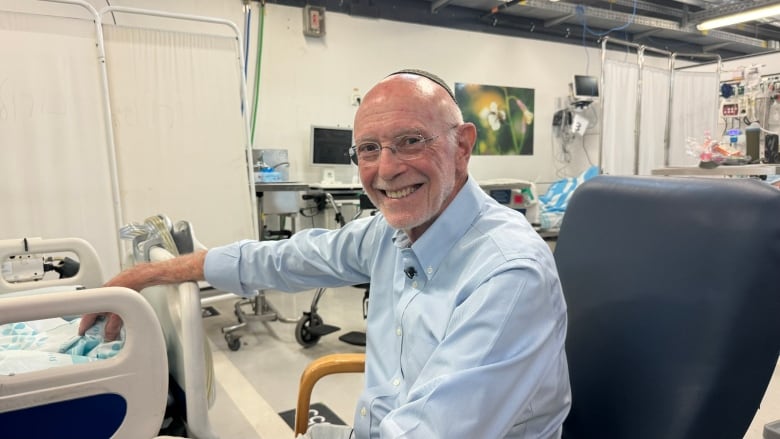
Korzen is a retired professor of dentistry at the University of Toronto who used to practise at Mount Sinai Hospital. He said he has been amazed at how smoothly the new underground facility has functioned.
“You don’t hear anybody complaining. Everybody is in their bed. Everybody’s waiting to be treated in the proper manner.”
Amir Atari and his family are among the approximately 60,000 Israelis who have been displaced from their homes in the north due to Hezbollah rocket fire that followed the Hamas-led attacks of Oct. 7, 2023.
Sleeping amid constant bright lights and diminished privacy have been some of the challenges for patients, according to Braun. The inability to look out a window and see the outdoors has meant patients have to make a deliberate effort to go above ground to get daylight.
While the hospital is set up to continue this way indefinitely, Braun said it’s likely the patience of staff and administrators will soon wear thin.
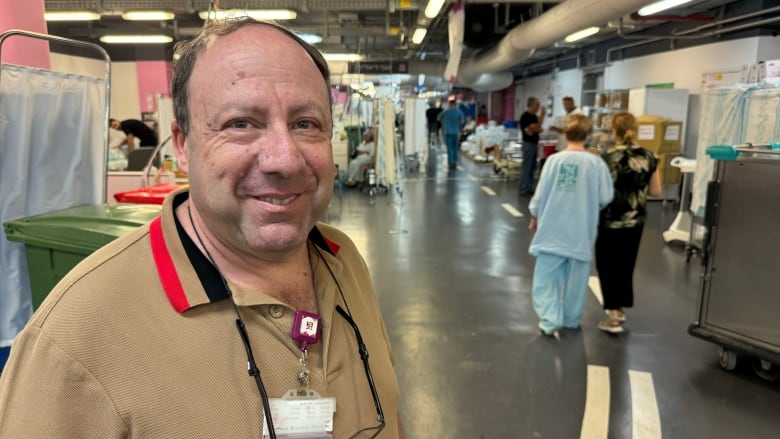
“I’m not the most optimistic or patient person. I think it can go on for a few months,” Braun said, referring to the cross-border attacks between Israel and Hezbollah.
“We should find a way to end this conflict.”
Along with relocating the hospital, Haifa has opened more than 110 bomb shelters and banned most large public gatherings.
The city’s popular beaches are far less crowded than usual.
‘We’re finally fighting back’
In the nearby town of Safed, which has been hit almost daily by rockets fired from across the border, there seemed to be little appetite for a ceasefire. Several people told CBC they hope Israel continues to push hard against Hezbollah.
“There can be no ceasefire, no compromise, because they’re not interested,” said Micheal Ben Benjamin, sitting behind the welcome desk in the local English-language library.
“If you negotiate, you are regarded as weak. The only thing they understand is force.”
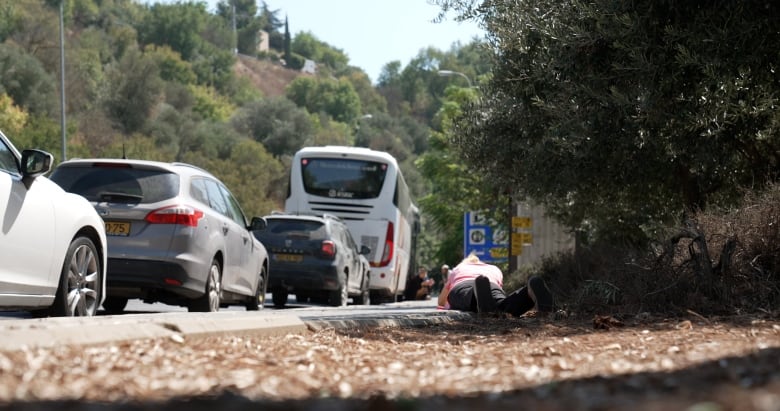
In Kiryat Shmona, just three kilometres from the border with Lebanon, the streets are largely deserted as most of the city’s population of 25,000 has fled farther south.
On the day CBC visited, Hezbollah rockets that landed just an hour before had sparked a major forest fire a few hundred metres from a subdivision of now-deserted homes.
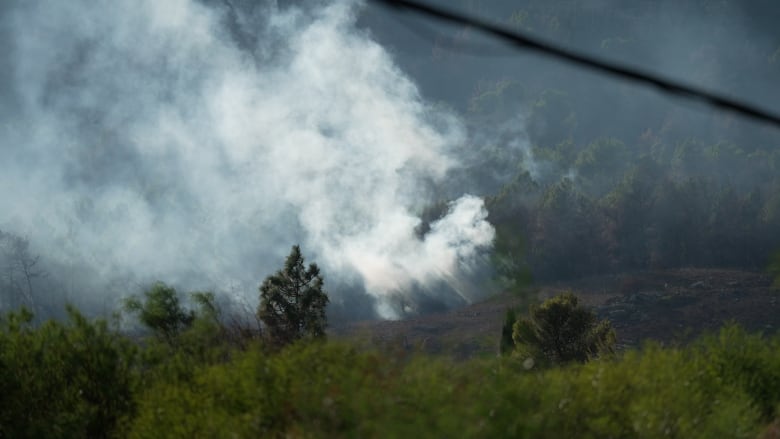
IDF Maj. Doron Spielman, who’s serving as a spokesperson on the northern front, said while he doesn’t expect Hezbollah will stop attacking anytime soon, he feels like Israel has at last turned a corner.
“We’re all very happy that we’re finally fighting back,” said Spielman.
“For over a year, we’ve been sitting patiently, absorbing blow after blow after blow while dealing with Gaza, where Hamas is trying to kill us. And Hezbollah in the north took advantage.”
CBC’s Chris Brown visited the largely evacuated town of Kiryat Shmona in northern Israel, where the Israel Defence Forces were trying to contain fires set off by Hezbollah rockets fired over the border from Lebanon.
